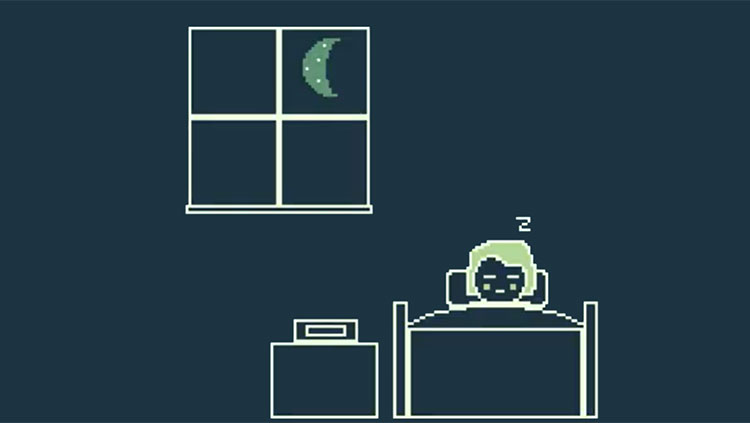Why Do Dreams Feel So Real?
- Published20 Oct 2021
- Source BrainFacts/SfN
While you dream, some parts of your brain are more active than others. Regions involved in sensory processing, memory, and emotion fire off lots of messages, while the parts responsible for logic and reasoning quiet down.
This is a video from the 2021 Brain Awareness Video Contest.
Created by Saanika Gupta.
CONTENT PROVIDED BY
BrainFacts/SfN
Transcript
Sometimes the dreams we have seem so real. Most of the emotions, sensations, and images we feel and visualize are those that we can say we have seen or experienced in real life. This is because the same parts of the brain that are active when we are awake are also active when we are in certain stages of our sleep.
Better said in the movie Inception, “Well, dreams, they feel real while we're in them, right? It's only when we wake up that we realize that something was actually strange.”
Our brain goes through two basic types of sleep: non-REM sleep and REM sleep. Though dreaming can occur during any stage of sleep, it typically happens during the REM stage. Reports have shown that people recall more elaborate and vivid dreams during REM sleep. This may explain why it is easier to remember our dreams when we are woken up by a person or by an alarm clock, because our brain is still in REM sleep. So it is easier to remember the dreams rather than waking up on our own where our brain has time to go through the consequent stages after REM sleep, allowing us time to forget parts of our dream, if not all.
Most of the brain is active while we are dreaming, but some parts are more active than others. Neurologists use magnetic resonance imaging to produce images of the brain that allow them to see which parts of the brain are highly active while a person dreams. Studies have revealed that the same parts that process information that are active when we are awake are also active in REM sleep or, in other words, dream sleep.
The parts of the brain that are highly active while we dream are the visual cortex, amygdala, thalamus, and hippocampus and explain why we are able to imagine, visualize, and feel the same way while we are awake and as we dream. The visual cortex, positioned at the back of the brain is highly active, which is why we are able to see the people we meet in our dreams or feel like we can fly. The amygdala deals with emotions such as fear, which is why we get nightmares. When we dream, we are able to process those emotions that we feel when we are awake.
The thalamus passes on information from our senses to the cerebral cortex, which interprets and processes information. During non-REM sleep, the thalamus is inactive, but during REM sleep, when we are dreaming, the thalamus is active, sending the cerebral cortex images, sounds, and sensations, which is why we are able to hear, feel, and see in our dreams similarly to how we do when we are awake.
The hippocampus plays a critical role in forming and storing new memories and connecting sensations and emotions to those memories. When we dream, the role the hippocampus is what allows us to dream. And as we dream more, these memories are reinforced and hence our memory is improved.
Some of the parts that are least active are the frontal lobes, which allow us to problem solve, help us with judgment, and a myriad of a cognitive skills. This explains why we aren't able to judge the crazy things that happen in our dream and feel as they are real, until we wake up.
The parts of the brain that are active when we learn and process information in the real world are also active while we dream and replay the material as we sleep. And so, a lot of the things we see, hear, and feel in real life show up in our dreams. Dreams help with processing our memories. That's why the next time you're up late studying for a test or plays for a game the next day, it's best to put those notes down, go to sleep, and let your brain do the rest of the job.
Also In Sleep
Trending
Popular articles on BrainFacts.org
















